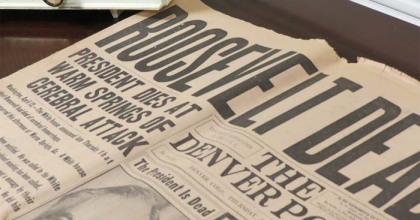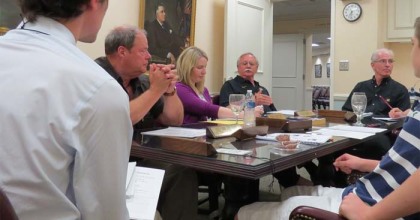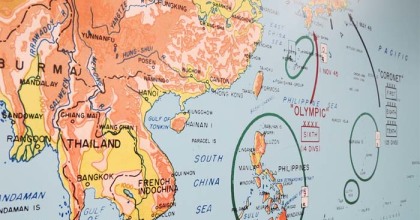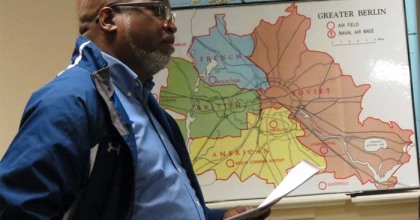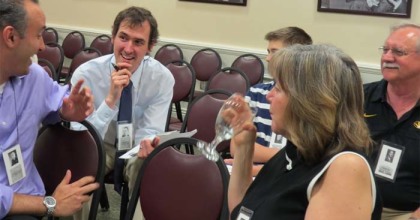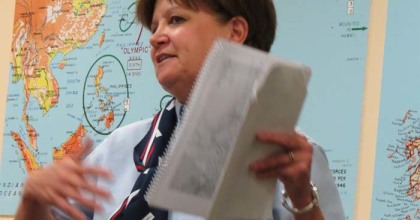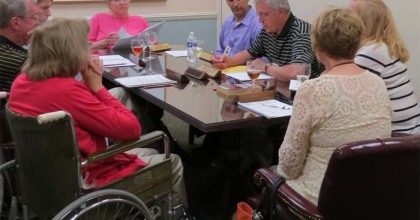WHDC Scenarios
It is August 1945. The United States and its allies defeated Hitler and Mussolini in Europe, but the war in the Pacific rages on. President Truman, the Joint Chiefs of Staff, and other key advisors are vigorously debating how to end the war with Japan quickly with as few casualties as possible. Should the U.S. remove or maintain the unconditional surrender term? Is the blockade, a land invasion, or a combination of the two the best way to end the war? Should atomic weapons, a new tool in the U.S. military arsenal, be used? Gather your advisors and review the most recent intelligence. The fate of the world is yours to decide.
It is July, 1948 President Truman is running for election and the Democratic convention is July 12-15, and Democrats are not in agreement with the President’s stand on civil rights. Although they successfully fought the Nazis and their racist ideology in Europe, African Americans serving in the postwar military are still limited to only certain roles and opportunities. The developing violence and civil rights crisis in America deeply troubles President Truman, who has called his advisors together to decide how to address postwar civil rights. How can this administration stop violence again African American veterans and citizens and push the country closer to the ideology that all men are created equal? Besides military options, what other solutions does President Truman have the power to make: economic pressures, diplomatic decisions, passed legislation? Gather your advisors together and figure out how to end racial injustice while staying within the powers granted to the Executive Branch by the U.S. Constitution. The fate of the country is in your hands.
The year is 1948. The Soviet Union has imposed a blockade on West Berlin, cutting off all land and rail routes. More than 2.5 million people risk mass starvation, and the power of the Western Allies is called into question. It is the first crisis of the Cold War. Should the U.S. use military power or diplomacy to support the Berliners? Does the newly passed Marshall Plan cover rescue efforts or will Congress be able to block legislation and support? Along with the humanitarian aspect, how can this administration keep the spread of Communism in check while expanding the role of Democracy in war ravaged Europe? Gather your advisors and review the most recent intelligence. The fate of the world is yours to decide.
It is June 1950. World War II ended five years ago, and Americans are tired of war. President Truman is at home in Independence, MO when he receives a phone call from his Secretary of State who informs him that Communist North Korea crossed into Democratic South Korea. Korea is split in two and South Korea is a fragile democracy. The United States supports South Korea’s government but is it ready to enter into another military conflict? Does the new U.S. approach on foreign policy, based on on the Truman Doctrine, apply to democratic countries in Asia or just in Europe? What role does the newly formed United Nations play in an international conflict? What are the dangers of the spreading of U.S.S.R supported Communism and is it the role of the United States to stop that spread? Gather your advisors and review the most recent intelligence. The fate of the world is yours to decide.
It is May, 1948, and the British government has almost completed the withdrawal of their troops from Palestine after announcing the end of the British Mandate in December, 1947.Their exit opens a void in power in the region that will affect 1.9 million Arabs, Jews, and Christians living in Palestine and displaced people fleeing to Palestine. It will also impact relationships between Arabs and Jews, the authority of the United Nations, control of strategic oil reserves, and the balance of power in the Cold War. Should the United States recommend that Palestine be turned over to the United Nations under a trusteeship? Should we advocate in the United Nations a two-state solution: Palestine and Israel? What about the displaced Jews in Europe, three years after World War II and their longing for a homeland? If a Jewish state is created and war ensues, does the United States bear responsibility? What about the intentions of the Soviet Union? Gather your advisors and review the most recent intelligence. The fate of the world is yours to decide.
Walmart Leadership Academy
“The group had a great time with valuable learning experiences. One participant who played Truman said making the decision on how to end the war was the most pressure she’s ever felt—real or otherwise. She noted that all future decisions would seem minor. That’s pretty powerful!”
American Association for State and Local History
“What a wonderfully challenging and thought-provoking activity! It’s certainly one of the best museum programs I have ever run across.”
Kansas City Convention and Visitors Association
“An excellent way to develop quick thinking and critical analysis skills.”
Kansas City Metropolitan Bar Association
“Great program. EXCELLENT staff!”
FedEx Ground
“Very effective hands-on skill building in a safe and interesting environment.”
YOU’RE JUST 3 STEPS FROM THE WHDC
STEP 1: CUSTOMIZE YOUR EXPERIENCE
- 2- to 5-hour sessions offered Monday through Saturday
- Office hours or after hours
- Catering and open bar, optional
- $25 per person for groups or 6-72 (minimum charge: $450)
STEP 2: CHOOSE YOUR DECISION
- Ending the War with Japan
- Addressing Postwar Civil Rights in the U.S. Armed Forces
- Reacting to the Soviet Blockade of Berlin
- Responding to the Communist Invasion of South Korea
- Addressing the End of the British Mandate in Palestine
STEP 3: REQUEST RESERVATION NOW!
WHDC Director | Matt Reeves, Ph.D.
Email | thewhitehousedecisioncenter@gmail.com
Phone | 816.268.8203
Virtual simulations available.




